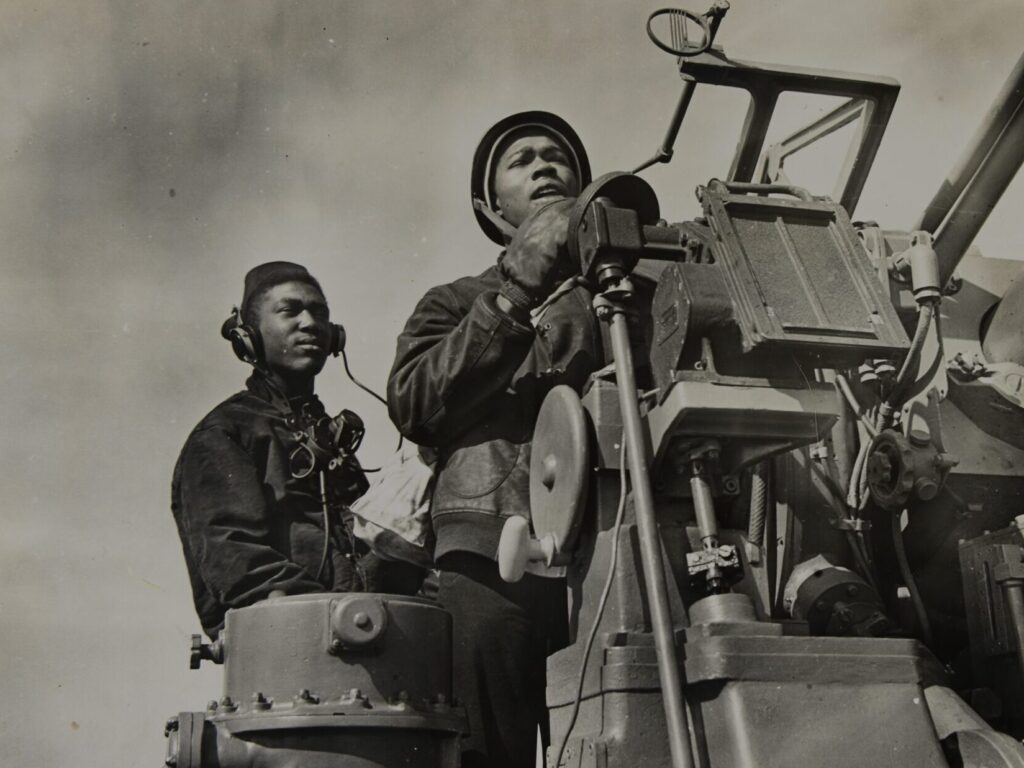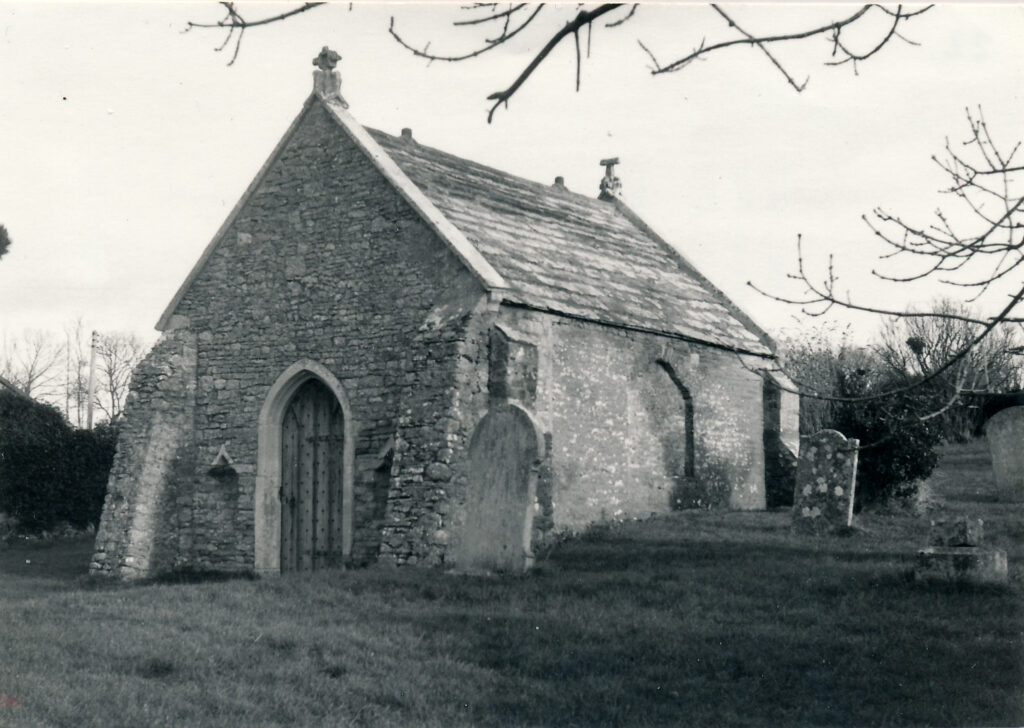Please be aware that the following blog contains quotes from an audio recording which includes racial language as reported from past experiences. Dorset History Centre does not condone the use of such language, but recognises that such terms were used in the past and are reflected in historical records.
—
The Dorset Sound Archive, cared for at the Dorset History Centre, contains a wide variety of interviews. These have been collected since the early 1980’s, and usually by local history projects. For example, the Dorset Schooldays Project interviewed people about their memories of schooling in the 1920’s and 30’s and there is a substantial collection of interviews with people directly involved with D-Day off the Dorset coast.
New recordings still often come to us from projects, and we encourage anybody planning to record oral history to get in touch with us so that we can offer support and a permanent home for the materials generated.
In addition, trained DHC volunteers collect interviews with individuals who are willing to share their story. Back in January we were introduced to Leslie John Stockley, local son of a black G.I. and a Weymouth woman. John, as he prefers to be known, generously spent some hours with our interviewer, allowing her to record his life story. Interviewees from minority ethnic backgrounds are under-represented in the Dorset Sound Archive, and John has had an exciting life which sheds light on Weymouth’s past in a unique way.
John was born on the last day of World War Two and explains that;
(In) 1943 /4/5 the Americans arrived, they’d come into the war and their first troops… that they had sent here were the Pioneers who were black regiments. They came to widen all the gates and prepare the countryside for this huge influx of massive vehicles and bulldozers etc., tanks, everything you can think that goes with the war machine.

John then talks about his idyllic upbringing with his grandparents at Moonfleet where his Grandmother was a Church Warden;
…in Weymouth church services were segregated so that… white American soldiers went in the morning and in the afternoon the black soldiers would go. My Grandmother … was Church Warden in Holy Trinity in Fleet and … she would tell me that when the black American soldiers came on a Sunday in the afternoon, people would come from all over Dorchester, Portland, Weymouth – come to stand outside the church and listen to them sing negro spirituals and if you know Holy Trinity, it’s in a little valley, and the sound would have been fantastic…

John goes on to describe his Mother and Stepfather’s businesses in Weymouth and how with no qualifications but a quick mind, a bold attitude and sea-going experience he travelled in America and Europe. As one-time landlord of The Globe public house in Weymouth he goes on to paint a vivid picture of the Quay in the 1960’s and 70’s!
Inevitably, John’s life experiences were affected by being black and the attitudes around him. This is demonstrated throughout the interviews which are now available online directly from our catalogue (DSA/252). During his recording John tells us about two very different football games. He attended St John’s Church of England School in Weymouth and remembers a playground game on a cold November day;
(I) remember playing football in the … playground, I was eight years old, something like that and … there was snow in the playground, but we still continued to play football and I remember, I don’t know what happened, but a… young fella got tripped up and he got up and he called me, ‘a dirty n*****.’
My first reaction was to punch him on the nose. (pause…) I couldn’t understand, I looked down, I remember looking down at the snow, the white snow and seeing the blood on it and I was immediately spirited away up to the Headmaster’s office. Made to stand in the corner.
My Mother was summoned, … she was a very smart woman, she turned up in a twin set, handbag, hair done, makeup on. Came in, ‘What’s wrong?’ (pause) I was told to say nothing, be quiet. And he said to my Mother standing in front of her, ‘You have to remember, Mrs Stockley, you cannot educate these…’ (long pause)
And I remember, the tears rolling down her face and then he caned me in front of her which made her even worse.
Later, when John was playing football at West Haven, he had a much happier experience;
…changing in the girls‘ changing rooms because they, the home team, changed in the boys‘ changing room, (I) changed into my strip, ‘St John’s,’ ran out onto the field and noticed another black boy. We stopped and looked at each other as if… ‘Who’s this guy?’
We were all made to shake hands. I shook his hand, I played on the wing...he played on the wing! So we would be fighting for the ball, getting a run, being tackled by him. I remember running down the wing with him in hot pursuit with the ball and…. our goal keeper‘s Father screaming, ‘Run d*****, run!’ And we both stopped and looked at him (chuckles) to say ‘Who are you talking to? Which one?’ and we laughed. That was my first meeting with my friend, Paul Nash, who was also a mixed race, African American…
First-hand accounts of changing attitudes add a great deal to our understanding of the experience of BAME people in Dorset and further afield. If you would be interested in sharing your story with us, please do contact us.
—
More stories of the children of black G.I.s are contained in ‘1944 We Were Here: African American G.I’s in Dorset’ by Louisa Adjoa Parker. This can be found in our onsite local studies library and other libraries around the county. You can also read more about Louisa’s work via her own website.


I am fascinated by this report from John Stockley but particularly the bit about the singing of negro spirituals. I am a member of the Ridgeway Singers and Band and have long been interested in the story of a shipwreck on Chesil beach at around the time, late 1870s, when some of the survivors were black americans who then went to work on the construction of the Abbotsbury branch railway line. It is said they sang negro spirituals in the pubs around that time. We woud love to be able to reproduce those songs in our choir but have not been able to trace them. Is John Stockley a possible source?
A fascinating account and insight into how it must have like for John to grow up and thrive in post-war Weymouth. A wonderful story from a wonderful man …..
When I first came to Osmington from Bristol (a very multicultural city), I worked part-time as a barmaid in the local pub with his girlfriend (now wife). John came in and was greeted with “hello Sooty”. My mouth dropped open, and seeing this I was told “It’s all right – he’s a chimney sweep “.
I have just watched the TV programme “Britain’s Secret War Babies” where I watched John’s story. My sister in Montreal has sent me the link to the Dorset archives. I was born in Weymouth in 1938 & lived near the Army Barracks beside the Nothe, where G.Is were based. Until I watched the programme I knew nothing. Thankyou John.
I have known John for nearly all of my seventy five years. I moved back to Weymouth for a year in 2013 and on Remembrance Day went with him to lay his wreath at the American Memorial for his then, unknown father. The fact that he has found out who his father was and has embraced his American family is nothing short of miraculous.
He was a wonderful landlord at the Globe Inn, Weymouth and well I remember one evening asking for “another round here please Sooty.” The young lady I was with was absolutely enraged and started berated me until John, in tears of laughter, assured her that he was a chimney sweep as well as a publican and that everyone knew him as Sooty! Thankfully order was soon restored.
I also remember Sooty from my days living in Weymouth back in the late sixties! Playing records on the bar. My introduction to Cream! We were a group of Manchester lads working the summer deckchairs and the Globe was a great place to chill at the end of a hot day.
Sadly.. John, ‘Sooty’ is no longer with us. Weymouth will miss this extremely popular man. RIP Sooty.
There were only about 14 pupils in John’s class at Chickerell school, at least three were obviously ‘war babies’, but how many of the others were also? In the 1850s, a teenage Prince of Wales was often a shooting guest at Abbotsbury. The story goes that he fathered 6 or 7 offspring with the village girls. This sort of thing has been going on a long time! DNA testing has thrown up all sorts of skeletons in cupboards, I suspect. My test showed me to be part German! My grandfather was born in Abbotsbury in 1858.
I have just been made aware of the Channel 4 documentary about John, and really enjoyed watching. Brave man!
My brother and I lived in Fleet during the 1950s and knew John – we are more or less the same age.
The photo in the picture is not of Holy Trinity Church, but of the Old Fleet Church – much of which was washed away by a massive flood in 1824. Holy Trinity Church was built further up the village to replace it, and so would have been the one where spirituals were sung; it is very pretty and well worth a visit!
And please note, the village is called FLEET, not Moonfleet. The Moonfleet Hotel used to be Fleet House, and was originally the home of the Gould family who built the new church. The novel ‘Moonfleet’ was written in the 1880s by Meade Falkner and people have been getting it ‘wrong’ ever since!